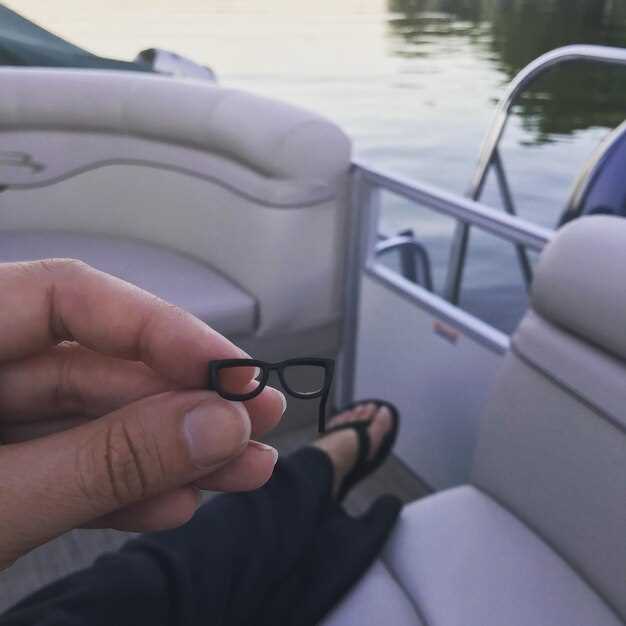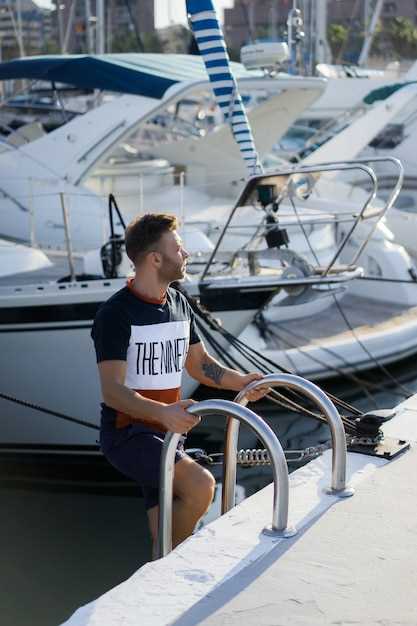Buying your first boat – key factors to consider

Purchasing your first boat is an exciting milestone that opens up a world of adventure on the water. However, before diving into the buying process, it’s crucial to consider several key factors that will ensure your investment meets your needs and lifestyle. This decision is not merely about choosing a vessel; it’s about understanding what you hope to achieve with your boating experience.
First, assess your intended use for the boat. Will you be fishing, cruising, or perhaps engaging in water sports? Understanding your primary activities will guide you in selecting the right type of boat. Each category has distinct features and specifications that cater to different preferences.
Additionally, beware of the hidden costs associated with buying a boat. Beyond the initial purchase price, maintenance, storage, insurance, and fuel can significantly impact your overall budget. Establishing a realistic financial plan will help avoid surprises and ensure you can enjoy your new purchase without stress.
Lastly, take the time to research various boat models and brands. Consider visiting local boat shows or dealerships to gain firsthand experience and expert advice. Each choice will influence your satisfaction with your first boat, making informed decisions essential for a successful purchase.
Assessing Your Budget and Financing Options

Before buying your first boat, it’s crucial to assess your budget thoroughly. Determine how much you can comfortably spend not only on the purchase price but also on ongoing costs such as insurance, maintenance, docking, and fuel. A common misconception is that the initial cost is the only expense to consider; however, boats require regular care and operational funds.
Start by setting a realistic price range. Research the types of boats that fit within your financial limits while also considering the features that are important to you. This will help narrow down your options and provide clarity on what you can afford without stretching your finances.
Next, explore financing options available to you. Many buyers consider loans specifically designed for boat purchases, which can offer competitive interest rates. Check with banks, credit unions, and specialized marine lenders to compare offers. It is also beneficial to pre-qualify for a loan to understand your borrowing capacity before you start shopping.
Additionally, evaluate the impact of financing on your overall budget. Monthly payments should fit within your monthly expenses without compromising other financial commitments. A thorough understanding of your financial situation will help you make informed decisions and avoid unexpected financial strain.
Lastly, it’s wise to keep a reserve fund for unforeseen expenses. Owning a boat can come with surprises, and having a financial safety net will ensure that you enjoy your boating experience without undue stress. By carefully assessing your budget and exploring financing options, you will be better prepared to make your first boat purchase a successful and enjoyable one.
Choosing the Right Type of Boat for Your Needs
When purchasing your first boat, selecting the right type is essential to ensure it aligns with your intended activities and lifestyle. Here are some valuable tips to assist you in making an informed decision.
1. Determine Your Purpose: Consider how you plan to use the boat. Will you be fishing, sailing, cruising, or engaging in water sports? Different boats excel at different activities, so understanding your primary use will help narrow down your options.
2. Assess Your Experience Level: If you are new to boating, you may want to start with a smaller, more manageable boat such as a dinghy or a small pontoon. These types provide a great opportunity to learn the basics before moving on to larger vessels.
3. Think About Capacity: Consider how many people you intend to take on your boat. If you plan on having family outings or social gatherings, ensure the boat’s capacity meets your needs. Larger boats can accommodate more passengers but may also require more maintenance and operation knowledge.
4. Evaluate Storage and Transport: Before making your purchase, assess where you will store the boat when not in use. Some boats require mooring at a marina, while others can be trailered. Ensure your vehicle can handle the weight and size if you choose a trailerable option.
5. Budget Considerations: Beyond the purchase price, factor in additional costs including insurance, maintenance, fuel, and storage fees. Stick to a budget that allows you to enjoy your boat without financial strain.
Taking the time to understand these aspects will help you choose a boat that matches your lifestyle and enhances your boating experience. Each option has its own set of advantages and challenges, so careful consideration is key to ensuring satisfaction with your first boat.
Understanding Maintenance and Insurance Requirements

When purchasing your first boat, it’s crucial to recognize the importance of maintenance and insurance. These factors play a significant role in the longevity of your investment and your overall boating experience.
Regular maintenance is essential for keeping your boat in optimal condition. This includes routine checks on the engine, hull, and electrical systems. It’s advisable to create a maintenance schedule, which should include seasonal tasks such as winterizing the boat, cleaning the hull, and inspecting safety equipment. Following these tips can help prevent costly repairs and ensure your boat functions effectively.
Additionally, understanding the operational aspects of your boat can impact maintenance needs. Different types of boats require varying levels of upkeep. For example, sailboats may need more attention to the rigging and sails, while motorboats often focus on engine care. Familiarizing yourself with the specific requirements of your chosen boat type is beneficial.
Insurance is another vital consideration. Securing a comprehensive insurance policy protects you financially in case of accidents, theft, or damage. Prices vary based on factors such as boat size, age, and intended use, so it’s important to shop around for a policy that suits your circumstances. Ensure you understand what is covered and any deductibles involved. Some marinas may also require proof of insurance before allowing dockage.
Furthermore, consider liability coverage as part of your insurance policy, which can shield you from potential legal expenses resulting from accidents involving other vessels or property. As a first-time boat owner, having the right insurance can provide peace of mind and help you enjoy your boating adventures more fully.
Ultimately, being well-informed about maintenance and insurance requirements will not only enhance your boating experience but also safeguard your investment for years to come.




